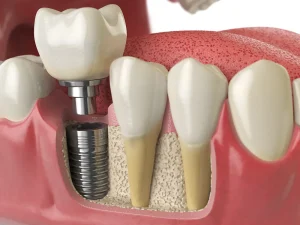The Science of Sleep and Weight Loss: How Better Rest Can Shed Pounds
3 min read
You know that feeling when you’re running on fumes, craving sugar like it’s your job, and suddenly the gym feels like a distant planet? Yeah, sleep—or the lack of it—might be the sneaky culprit behind those stubborn pounds. Here’s the deal: sleep isn’t just about recharging your brain. It’s a metabolic powerhouse, a hormone regulator, and honestly, an underrated weight loss ally.
Why Sleep and Weight Loss Are Secretly Best Friends
Think of your body like a finely tuned orchestra. When sleep gets cut short, it’s like the conductor walked out—hormones go rogue, cravings crash the party, and your metabolism slooooows down. Not exactly ideal for weight loss, right?
The Hormone Tango: Ghrelin and Leptin
Ever notice how a sleepless night turns you into a snack monster? Blame ghrelin (the “hunger hormone”) and leptin (the “fullness signal”). Sleep deprivation sends ghrelin soaring and leptin plummeting. Translation: you’re hungrier, less satisfied, and more likely to reach for that extra slice of pizza.
One study found that people who slept just 5 hours a night ate 300+ extra calories the next day. Over a week? That’s an extra large pizza’s worth of calories—without even realizing it.
Metabolism in Slow Motion
Your body burns calories even at rest—but skimp on sleep, and that calorie torch flickers. Research shows poor sleep can drop your resting metabolic rate by 5-20%. Add in the fatigue-induced slump (who wants to workout after tossing and turning?), and you’ve got a double whammy.
The Sleep-Weight Connection: What Actually Happens
Let’s break it down. When you’re sleep-deprived, your body goes into survival mode. It’s not just about willpower—your biology shifts. Here’s how:
- Cravings go nuclear: Sleep loss amps up activity in the brain’s reward centers, making donuts look irresistible.
- Fat storage favors the belly: Cortisol (the stress hormone) spikes, encouraging fat to park itself around your midsection.
- Muscle recovery stalls: Less sleep means slower muscle repair after workouts—key for maintaining metabolism-boosting lean mass.
How Much Sleep Do You Really Need?
The sweet spot? 7-9 hours for most adults. But it’s not just quantity—quality matters too. Waking up 10 times because your neighbor’s dog thinks 3 AM is party time? That’s not helping.
| Sleep Duration | Impact on Weight |
| Less than 6 hours | Higher BMI, increased cravings |
| 6-7 hours | Moderate risk of weight gain |
| 7-9 hours | Optimal for metabolism |
| More than 9 hours | Possible link to sluggish metabolism |
Practical Tips: Sleep Your Way to a Healthier Weight
1. Dial In Your Sleep Schedule
Your body loves routine. Going to bed and waking up at roughly the same time—even on weekends—trains your internal clock. Think of it like jet lag: erratic sleep = metabolic chaos.
2. Ditch the Late-Night Scrolling
Blue light from screens tricks your brain into thinking it’s daytime. Try a “digital sunset” 1-2 hours before bed. Or hey, grab an old-school book instead.
3. Cool Down Your Bedroom
Your body drops its core temperature to sleep. A room around 65°F (18°C) mimics this natural dip. Plus, you’ll save on AC bills—win-win.
4. Watch the After-Dinner Drinks
Alcohol might knock you out, but it murders sleep quality. That “nightcap” could mean less REM sleep—the kind that helps regulate metabolism.
The Bottom Line
Sleep isn’t lazy. It’s strategic. You wouldn’t expect a car to run on empty—why expect your body to? Better sleep won’t magically melt fat, but it sets the stage for everything else: balanced hunger cues, efficient workouts, and a metabolism that doesn’t feel like it’s stuck in first gear.
So tonight? Maybe trade that late Netflix binge for an extra hour of shut-eye. Your waistline—and your brain—will thank you.





